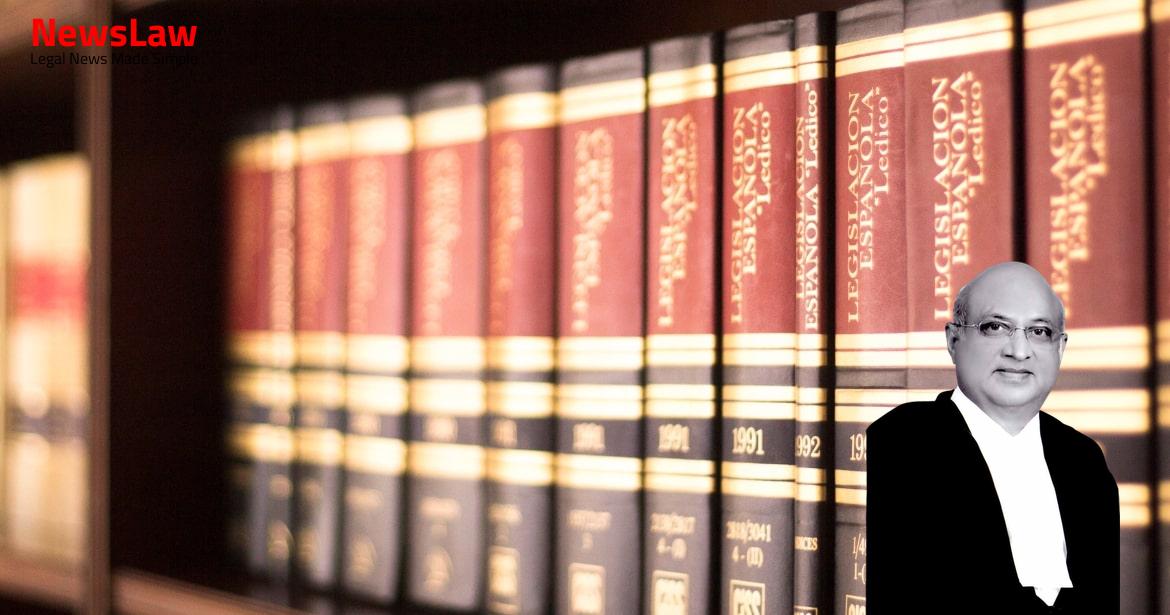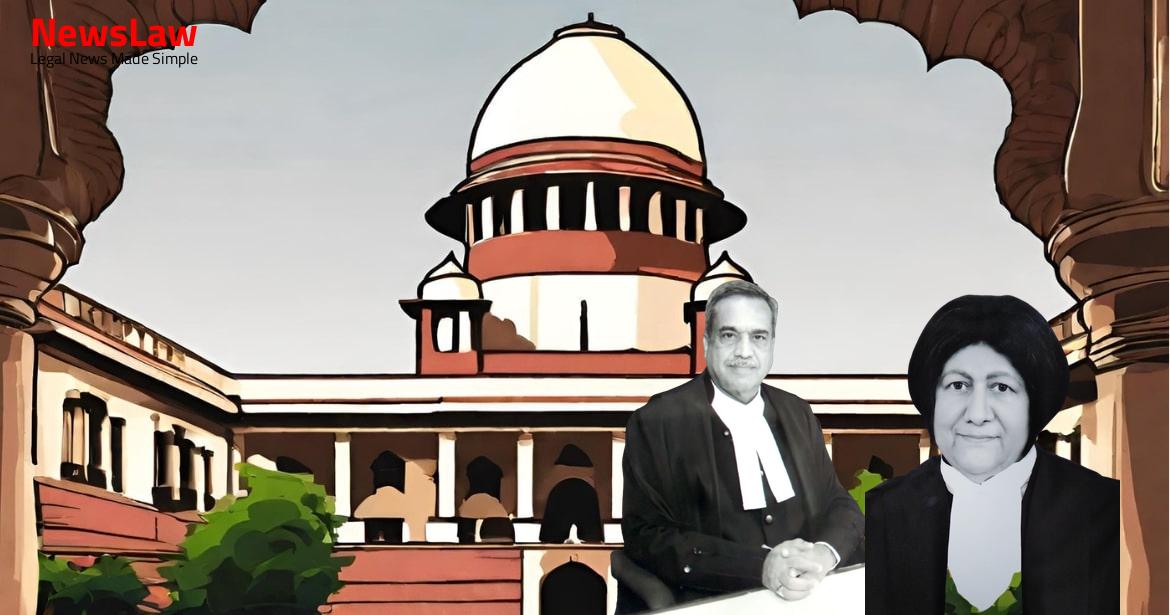In a landmark case before the Supreme Court of India, the determination of the definition of ’employee’ under Section 2(f) of the Act has been brought into question. The case involves the Provident Fund Authorities challenging the legality and correctness of a High Court’s order that favored the Corporation. Stay informed about this crucial legal battle that could have far-reaching implications for employees’ rights and statutory obligations. #SupremeCourt #LegalCase #EmployeeRights
Facts
- The appellant issued a notice to the Corporation under Section 7A of the Act, demanding payment of arrears towards provident fund contribution for 159 workers.
- The Corporation contested the notice, claiming that there was no employer-employee relationship between them and the workers.
- The Corporation stated that it operates under the provisions of the Warehousing Corporation Act, 1962, and uses contractors to employ workers for loading and unloading in their Godowns.
- The workers, represented by U.P. Rajya Bhandar Nigam Asthayi Handling Mazdoor Union, claimed benefits under the Act.
- The question arose whether the workers are entitled to Act benefits and if the Corporation is liable to pay statutory contributions for them.
- The High Court relied on its earlier finding that there was no master and servant relationship between the Corporation and the workers.
- The question of whether the workers were employees of the Corporation was previously adjudicated in Labour Court Case Nos. 89/2006 and 3/2009.
- The Labour Court initially ruled in the workers’ favor, but the High Court later set aside this decision in W.P. No 72314 of 2010.
- Based on the High Court’s finding in their favor, the Corporation argued that the Section 7A proceedings against them lacked merit and should be withdrawn.
- The appellate authority upheld the order, leading to the Corporation filing a writ petition in the High Court of Allahabad.
- The High Court (Single Judge) granted the writ petition, overturning the orders of the adjudicating and appellate authorities.
- The adjudicating authority, through an assessment order, held that the Corporation was liable to pay the workers’ contributions as per the Act.
Also Read: Supreme Court Judgement: Settlement of Dispute after Lok Adalat Award
Arguments
- The Provident Fund Authorities filed an appeal questioning the legality and correctness of the High Court’s order.
- The main question for consideration is whether the High Court was justified in allowing the writ petition filed by the Corporation.
- The High Court set aside the orders of the adjudicating authority and the appellate authority.
- Mr. Keshav Mohan appeared as the counsel for the appellant.
- Mr. P.S. Misra represented the Corporation.
- Mr. R.R. Rajesh appeared as the counsel for another respondent.
Also Read: Land Dispute Resolution: Supreme Court’s Decision on Order 7 Rule 11 Application
Analysis
- The definition of ’employee’ under the Industrial Disputes Act (ID Act) is not identical to the definition of ’employee’ defined under Section 2(f) of the Act in question.
- The object of the ID Act and the Act in question are not the same.
- The High Court failed to consider the definition of ’employee’ as defined under Section 2(f) of the Act in question while deciding the case.
- The issue should have been examined in the light of the relevant provisions of the Act in question, not based on findings under the ID Act.
- The relationship of employer and employee for applicability of the Act in question should be decided based on the definition of ’employee’ under Section 2(f) of the Act.
- The definitions of ’employee’ under the ID Act and the Act in question are not similar.
- Findings recorded by the Labour Court under the ID Act are not relevant in deciding a question under a different Act.
- The issue must be independently decided and not based on previous ID Act proceedings.
- The High Court’s decision was flawed as it did not consider the definition of ’employee’ under the relevant Act.
- The impugned order is legally incorrect and warrants intervention in this appeal.
Also Read: Land Rights Dispute: Supreme Court’s Decision on Shiv Dayal and Kasturi Devi Appeals
Decision
- The High Court is requested to decide the writ petition quickly.
- The case is remanded to the High Court for further consideration.
- The impugned order is nullified.
- The High Court is instructed to review the Corporation’s writ petition with regards to the definition of ’employee’ as per Section 2(f) of the Act.
- The High Court should then determine if the proceedings under section 7A of the Act are lawful.
- The appeal is successful and granted.
Case Title: ASST. PROVIDENT FUND COMMISSIONER EPFO, BAREILLY Vs. M/S U P STATE WAREHOUSING CORP
Case Number: C.A. No.-006295-006295 / 2019



